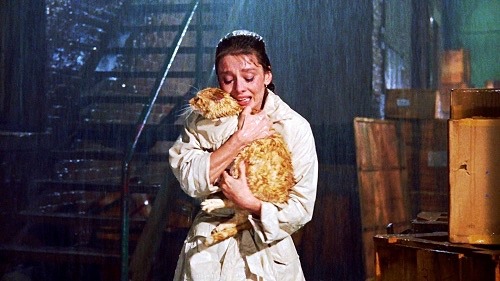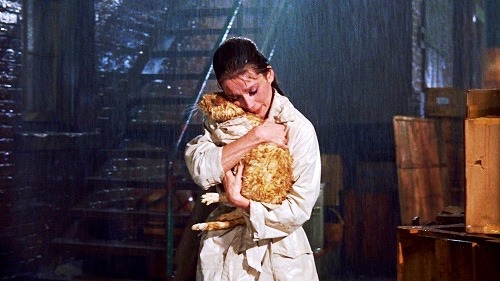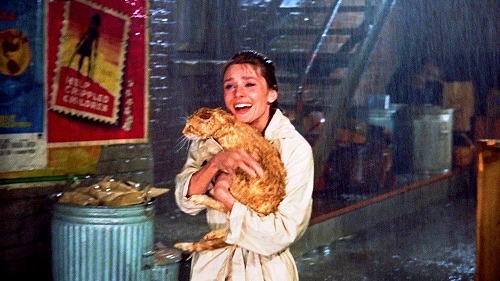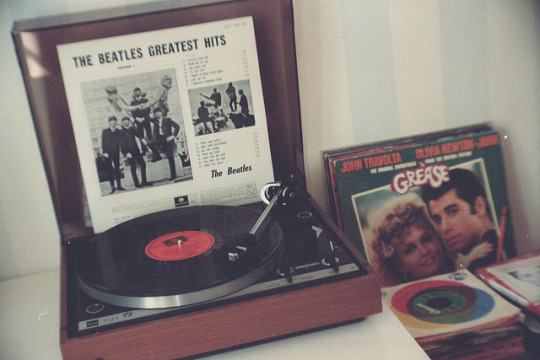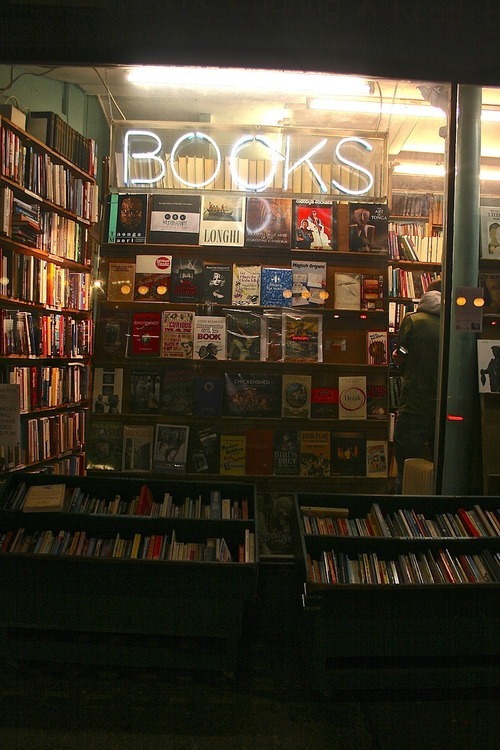"Years, lovers, and glasses of wine; these are the things that should never be counted."
Don't wanna be here? Send us removal request.
Photo

Gossip Girl Merchandise: http://bit.ly/1nrdpyd
10 notes
·
View notes
Photo


Audrey Hepburn in Breakfast at Tiffany’s (1961).
3K notes
·
View notes
Photo

Woman takes a break from updating stock prices, New York 1962
via reddit
923 notes
·
View notes
Text
Summarized Chinese History by Tiarra De Soto
Trust me, I’m a History major. Here to spread my love for history.
Chinese dynasties:
1. Xia (2205-1575 BC)
-not considered as the 1st dynasty by most people because there was no system of record and writing
- believed as an urban legend
2. Shang (1570 - 1045 BC) -Beijing city
-ruled areas in the Yellow River (Huang Ho)
-Bronze Age (honoured bronze higher than silver
-barbaric sacrifices
-addicted to hunting and warfare
3. Zhou (1045- 256 BC) -Xian City
-longest ruling dynasty
-1st used the Mandate of Heaven to justify their rule {what the Chinese believed gave their rulers right to be emperor}
-Confucianism
-developed new weapons
-psychological warfare
-feudal system based on Confucius
-7 states battled for supremacy
-Jade represented their noble ranks
4. Qin (221-206BC)
-Shi Huangdi became emperor (1st emperor of China; died in 210 BC)
-beginning of the Great Wall of China
-roads and canals were built (most resourceful)
-feudal system was eliminated
-created the monetary system
-history and poems were destroyed (because Shi Huangdi wanted to recreate China in his reign)
-destroyed 2/3 of enemy's population
-Terracotta Warriors
4.1.1 The Great Wall of China
-thousands of men exposed to fatigue
-monument of dynastic might
-warning to the outside that China is united
-6000ft.
* 15 years of chaos after Shi Huangdi's death
5. Han (206 - 220 AD)
-Wu Di (5th emperor)
-established the civil service to create a strong and organized government
-papers and porcelain were invented
-embraced Confucianism, poetry, and literature
- Silk was the choice of fashion (imported silk to other nations like Persia, Baghdad, and Rome)
6. Six Dynasties (222-581 AD)
-China wasn't united under one ruler
7. Sui (5890618 AD)
-united China under one rule
-expanded the Great Wall and built Grand Canal
8. Tang (618-907 AD)
-peace and prosperity
-Golden Age
-Capital: Chang'an
9. Five Dynasties (907-960 AD)
-peasant rebellion takes down Tang
10. Song (960-1279 AD)
-reunited under the dynasty
-China became world leader in science and tech., including inventions: gunpowder and compass
11. Yuan (1279-1368)
-After Mongols defeated the Song, Kublai Khan, a Mongol leader, established this power
12. Ming (1368-1644)
-finished the Great Wall and the Forbidden City
-came to power by overthrowing the Mongols
13. Qing/ Manchu (1644-1912)
-last dynasty
-period of prosperity
-middle of this era, there were natural disasters, rebellions, invasions, and inept ruling courts
-Henry Pu Yi was the last emperor of China
The Advent of Europeans
1. Portuguese
-spread the knowledge of Western sciences among Chinese scholars
-Confucian scholars began to oppose the spread of Christianity
2. Spaniards
-Canton Trade
3. Dutch
-settled in Taiwan in1660s
-improve their relations with the Manchu government which came to power subsequently
4. British
-made an attempt to trade with the Chinese at Canton but failed
-led to the Opium War
-1685, Chinese opened port of Canton for trade and issued the necessary licence to European trading & British East India Co.
-Hoppo (Chinese Imperial Commissioner at Canton) allowed British to set up a permanent factory at Canton
5. French
-came in the Opium War 2
-Emperor Napoleon Bonaparte saw an opportunity to declare war in China
-Anglo-French Expedition
Opium War I
Causes:
-emperor of China banned the import of opium because Chinese were addicted
-Lin Tse-hsu (Hoppo) sent a mail to Queen Victoria (Britain) to declare that import of opium is no longer valid
-Britain did not follow; still continued to import
-British Captain Elliot was forced to surrender 20,000 chests of opium
-Lin dumped these chests of opium into the sea
Results:
-British fleet approached Canton in June 1840 and demanded from the Chinese gov't compensation for loss of opium and the necessary cost of the expedition
-British fleet blockaded Canton. 2000 troops sent from India occupied it.
-battled
-British won, China lost
=TREATY OF NANKING (August 29,1842)
a.) protection of the British subjects in China
b.) their trade in 4 important ports: Amoy, Foochow, Ningpo, and Shanghai were to be supervised by consular authorites
c.) cession of island of Hong Kong in perpetuity
d.) compensation of $21,000,000 to be paid in 4 instalments ($6,000,000 for the loss of opium, $12,000,000 for the cost of the war, and $3,000,000 for the debts owed by the Chinese authorities)
e.) the Cohong stood abolished
f.) easy communications through diplomatic channels
g.) tariff regulation regulating foreign trade
Opium War II
Cause: (Britain)
-Chinese vessel, Lorcha Arrow, flying a British flag was seized by a Chinese police patrol at Canton on charges of smuggling and piracy
-The British captain protested and the vessel was returned, though not the crew
-Britain asked for an apology, which China didn't give
Cause: (France)
-French missionary, Abbe Chapdelaine, trespassed. China found this act guilty. Was sentenced to death
-France saw this as "judicial murder"
-Napoleon Bonaparte saw this as an alibi to declare war
Results:
-Anglo-French Expedition
-China lost yet again
=TREATY OF TIENTSIN (June 26, 1858)
a.) diplomatic relations on the footing of equality were to be established between Britain and China with the former's minister residing at Peking
b.) China agreed to open 10 more ports for British trade
c.) British were to enjoy freedom of travel and conduct missionary activity
d.) extra-territoriality
e.) British vessels were to have access to all treaty ports
f.) Indemnity of 4,000,000 silver dollars was to be paid to the British Lord Elgin
Taiping Rebellion (1850-1862)
-means "great peace"
-ironically characterized by great violence
-rebels controlled half of China, mainly the valley of Yang Tse
Leader of the rebellion: Hung Hsiu-Chuan (from peasant community, Hakka)
Reasons of the movement:
-to bring collapse of the corrupt Manchu government
-establish a society based on justice
Hung Hsiu-Chuan:
-Christian fanatic
-set up a secret society called "Society of God" with friend Feng Yun-shan
* movement began by breaking of the Buddhist and Taoist idols
Shang Ti Hui movement
-got support of members of the White Lotus Society
-organized to launch an attack against Manchu Army
New dynasty was ushered
-Taiping Tien Kuo
-Hung as heavenly prince
-idea of universal brotherhood was spread
-movement is popular among millions of peasants
Supporters of Taiping:
-peasants
-artisans
Movement:
-increased population
-mismanagement of economy
-tax was calculated in terms of silver but paid in copper
-Chinese troops forced charcoal workers from society of God to give contributions, but they refused.
quarrel & rioting
-Emperor sent 2 commissioners to quell the riots
-Hung got mad and declared revolt "Exterminate the Manchus!"
-Hung built a powerful military force. Commanded by great generals to defend the movement
Results:
-25,000,000 were killed
-He and his soldiers wasted too much time indulging in all kinds of pleasures
-Hung did not give lands to peasants like he promised
-Hung committed suicide and his followers were defeated.
-This great rebellion was crushed.
Significance of the rebellion:
-Hung made a blueprint for China to have a society based on social and economic justice
Tung Chih Restoration
-means Union for Order
-engineered by Empress Dowager
-to revive China's dynastic leadership (because they always lose at wars, hence The Years of Humiliation)
People:
1. Tseng Kuo Fan
-spread of western education and influences
2. Feng Kuei Fan
-combination of Western education and Confucian teachings
3. Wang Tao
-Father of Journalism
-advocated Chinese writing into Western
4. Yen Fu
-urged the Chinese to lower their sense of superiority
5. Kang Yu Wei
-Hundred Days Reform (from feudal system to a modern industrialized state)
Chinese response to the Christian missions
-they were deeply disturbed
-Confucian Chinese envious of Christian converted Chinese because of special protection from the church
Result:
TIENTSIN MASSACRE
-killed Christian Chinese and foreign missionaries
-burnt the French Consulate
-Chinese government were to apologize to French government
-China had a bad reputation
The French conquered Indo-China
-France planed to make spiritual and political conquests over China's vassal states like Vietnam
-France conquered Vietnam, Cambodia, and Laos
-led to the Sino-French War
Sino-French War
-China was provoked with France conquering her vassal states
-battled
-China lost.....again
-China was bitter because this was the 1st MODERN war they've lost
Significance:
-rise of nationalism
Boxer Rebellion
-used their fists for battle, hence the title
-"Overthrow the Qing! Destroy the foreigners!"
-goal was to destroy the foreigners IN China and the converted Christian Chinese
-Chinese officials supported this rebellion
-Western powers helped suppress this movement
Result:
The Boxer Protocol
a.) China were to apologize to Japan and Germany for killing their minister and chancellor
b.) punish the Chinese officials that supported this rebellion
c.) suspend official examinations in 45 Chinese cities where violent outbreaks took place
d.) agree to expand foreign legations in Peking
e.) destroy Taku forts and allow the occupation of foreigners at 13 places to ensure free access to Peking
f.) raise import duties to 5% and pay $333,000,000 as war indemnity
Sino-Japanese War
-Tonhak rebellion in Korea (severe poverty)
-Korea asked China to suppress the war
-officer notified Japan, Japan got mad
then...
China VS Japan
-Japan crashed Chinese forces: land and water
Results:
-CHINA LOST AGAIN!!! :(
-open to South-West ports for trade for the Japanese
-Treaty of Shimonoseki
-China gave up Korea
-Taiwan and Pescadores islands ceded to Japan
-war indemnity
-Japan gained most favored nation of China
.....then after years and years of humiliation.....
The Open Door Policy
-United States advocated this to China
-dispatchment of European powers
-China were to be open to trade on equal basis
-originally Britain's initiation, but did not meet with adequate response from other European powers
The Outbreak of Chinese Revolution of 1911
-The Wuchang Uprising: the mishandling of railway protection movement
-Sun Yat Sen established the Kuomintang Party (Nationalist Party)
Sun Yat Sen's plan of actions:
1. Nationalism: People's rule
2. Democracy: People's authority
3. Socialism: People's livelihood
Sun Yat Sen VS Yuan Shi Kai
Nationalist VS Dictatorship
-Nationaists won= Sun Yat Sen was the 1st president of Republican China
-Soviet Union supported Sun Yat Sen
-Sino-Soviet Relations
-Sun Yat Sen sent his follower, Chiang Kai Shek to Russia to acquire military training
-Chiang Kai Shek reigned as the president of the nationalist party and China
Rise of Communism
led by: Mao Zedong/ Mao Tse Tung
-in rivalry with the Kuomintang Party
-did more than the Kuomintang party= sparked an envy
-Japan were to invade China= Kuomintang and Communists joined forces, called the United Front
-United Front defeated Japan. China won at last!
-Kuomintang became corrupt
-people in favor of Communism
-Civil war = Communism won
-Chiang Kai Shek fled to Taiwan
Mao's Communist China
-did a lot for China's economy
-elimination of feudal elements
-Mao Zedong was a follower of Marxism-Leninism
-make China industrialized
-women enjoyed equal rights
-schools and colleges increased greatly by 1956
Reforms:
The Great Leap Forward
-radical strategy for rapid economic growth development of the country. Strategy to increase agricultural output
Commune System
-land owning peasants worked in the communes.
Cultural Revolution (1965)
-re-educating the intellectuals and upper class in China
-called on young people to attack pragmatic leaders
-created a generation of lost youth known as the Red Guard
-economic development
*reforms were not successful
Deng Xiaoping
-Mao Zedong's successor
-took power of China following the 4 modernizations: Agriculture, Industry, Science, and Technology and Military
0 notes
Photo

Audrey Hepburn in her apartment, Manhattan, NY, June 30, 1954
7K notes
·
View notes
Photo

Favorite quote from my favorite movie, The Age of Adaline.
0 notes
Photo

Ilig-iligan beach, Boracay. January 2017
0 notes


